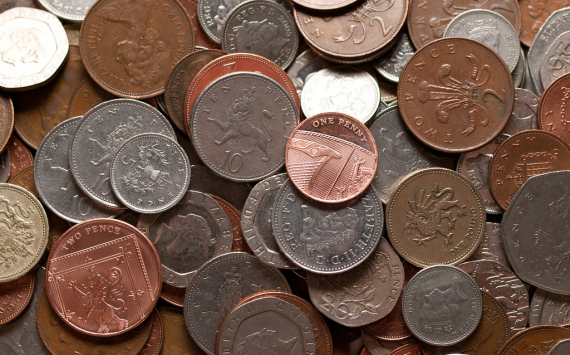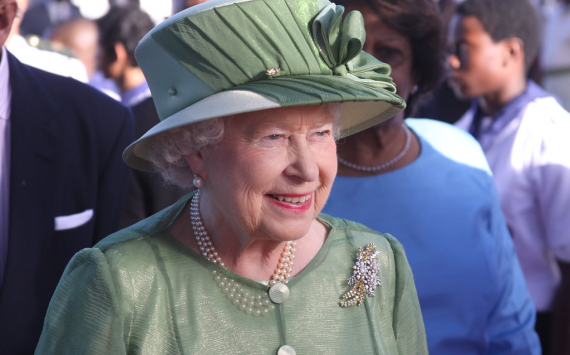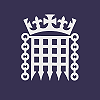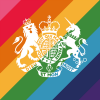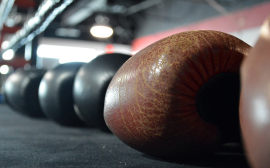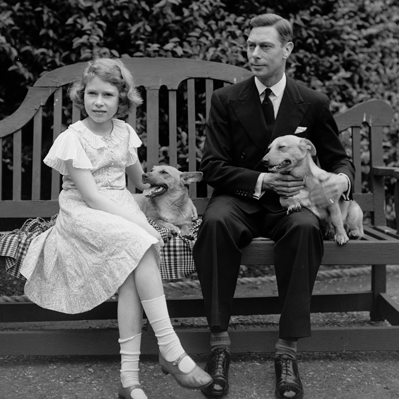
VI
George
(Albert
Frederick
Arthur
George)
King of the United Kingdom
Date of Birth: 14 December 1895
Date death: 6 February 1952
Age at the time of death: 56 years old
Zodiac sign: Sagittarius
Profession: King
Biography
George VI (Albert Frederick Arthur George) was King of the United Kingdom and the Dominions of the British Commonwealth from 11 December 1936 until his death in 1952. He was concurrently the last Emperor of India until August 1947, when the British Raj was dissolved.
Born in the reign of his great-grandmother Queen Victoria, he was named Albert at birth after his great-grandfather Albert, Prince Consort, and was known as "Bertie" to his family and close friends. His father ascended the throne as King George V in 1910. As the second son of the king, Albert was not expected to inherit the throne. He spent his early life in the shadow of his elder brother, Prince Edward, the heir apparent. Albert attended naval college as a teenager and served in the Royal Navy and Royal Air Force during the First World War. In 1920, he was made Duke of York. He married Lady Elizabeth Bowes-Lyon in 1923, and they had two daughters, Elizabeth and Margaret. In the mid-1920s, he engaged speech therapist Lionel Logue to treat his stammer, which he learned to manage to some degree. His elder brother ascended the throne as Edward VIII after their father died in 1936, but Edward abdicated later that year to marry the twice-divorced American socialite Wallis Simpson; Albert thereby became the third monarch of the House of Windsor, taking the regnal name George VI.
In September 1939, the British Empire and most Commonwealth countries—but not Ireland—declared war on Nazi Germany. War with the Kingdom of Italy and the Empire of Japan followed in 1940 and 1941, respectively. George VI was seen as sharing the hardships of the common people and his popularity soared. Buckingham Palace was bombed during the Blitz while the King and Queen were there, and his younger brother the Duke of Kent was killed on active service. George became known as a symbol of British determination to win the war. Britain and its allies were victorious in 1945, but the British Empire declined. Ireland had largely broken away, followed by the independence of India and Pakistan in 1947. George relinquished the title of Emperor of India in June 1948 and instead adopted the new title of Head of the Commonwealth. He was beset by smoking-related health problems in the later years of his reign and died of a coronary thrombosis in 1952. He was succeeded by his elder daughter, Elizabeth II.
Early life
The future George VI was born at York Cottage, on the Sandringham Estate in Norfolk, during the reign of his great-grandmother Queen Victoria. His father was Prince George, Duke of York (later King George V), the second and eldest surviving son of the Prince and Princess of Wales (later King Edward VII and Queen Alexandra). His mother, the Duchess of York (later Queen Mary), was the eldest child and only daughter of Francis, Duke of Teck, and Mary Adelaide, Duchess of Teck. His birthday, 14 December 1895, was the 34th anniversary of the death of his great-grandfather Albert, Prince Consort. Uncertain of how the Prince Consort's widow, Queen Victoria, would take the news of the birth, the Prince of Wales wrote to the Duke of York that the Queen had been "rather distressed". Two days later, he wrote again: "I really think it would gratify her if you yourself proposed the name Albert to her."
The Queen was mollified by the proposal to name the new baby Albert, and wrote to the Duchess of York: "I am all impatience to see the new one, born on such a sad day but rather more dear to me, especially as he will be called by that dear name which is a byword for all that is great and good." Consequently, he was baptised "Albert Frederick Arthur George" at St Mary Magdalene Church, Sandringham on 17 February 1896. Formally he was His Highness Prince Albert of York; within the family he was known informally as "Bertie". The Duchess of Teck did not like the first name her grandson had been given, and she wrote prophetically that she hoped the last name "may supplant the less favoured one". Albert was fourth in line to the throne at birth, after his grandfather, father and elder brother, Edward.
He was ill often and was described as "easily frightened and somewhat prone to tears". His parents were generally removed from their children's day-to-day upbringing, as was the norm in aristocratic families of that era. He had a stammer that lasted for many years. Although naturally left-handed, he was forced to write with his right hand, as was common practice at the time. He had chronic stomach problems as well as knock knees, for which he was forced to wear painful corrective splints.
Queen Victoria died on 22 January 1901, and the Prince of Wales succeeded her as King Edward VII. Prince Albert moved up to third in line to the throne, after his father and elder brother.
Military career and education
Beginning in 1909, Albert attended the Royal Naval College, Osborne, as a naval cadet. In 1911 he came bottom of the class in the final examination, but despite this he progressed to the Royal Naval College, Dartmouth. When his grandfather, Edward VII, died in 1910, his father became King George V. Edward became Prince of Wales, with Albert second in line to the throne.
Albert spent the first six months of 1913 on the training ship HMS Cumberland in the West Indies and on the east coast of Canada. He was rated as a midshipman aboard HMS Collingwood on 15 September 1913. He spent three months in the Mediterranean, but never overcame his seasickness. Three weeks after the outbreak of World War I he was medically evacuated from the ship to Aberdeen, where his appendix was removed by Sir John Marnoch. He was mentioned in despatches for his actions as a turret officer aboard Collingwood in the Battle of Jutland (31 May – 1 June 1916), the great naval battle of the war. He did not see further combat, largely because of ill health caused by a duodenal ulcer, for which he had an operation in November 1917.
In February 1918 he was appointed Officer in Charge of Boys at the Royal Naval Air Service's training establishment at Cranwell. With the establishment of the Royal Air Force Albert transferred from the Royal Navy to the Royal Air Force. He served as Officer Commanding Number 4 Squadron of the Boys' Wing at Cranwell until August 1918, before reporting to the RAF's Cadet School at St Leonards-on-Sea. He completed a fortnight's training and took command of a squadron on the Cadet Wing. He was the first member of the British royal family to be certified as a fully qualified pilot.
Albert wanted to serve on the Continent while the war was still in progress and welcomed a posting to General Trenchard's staff in France. On 23 October, he flew across the Channel to Autigny. For the closing weeks of the war, he served on the staff of the RAF's Independent Air Force at its headquarters in Nancy, France. Following the disbanding of the Independent Air Force in November 1918, he remained on the Continent for two months as an RAF staff officer until posted back to Britain. He accompanied Belgian King Albert I on his triumphal re-entry into Brussels on 22 November. Prince Albert qualified as an RAF pilot on 31 July 1919 and was promoted to squadron leader the following day.
In October 1919, Albert went up to Trinity College, Cambridge, where he studied history, economics and civics for a year, with the historian R. V. Laurence as his "official mentor". On 4 June 1920 his father created him Duke of York, Earl of Inverness and Baron Killarney. He began to take on more royal duties. He represented his father, and toured coal mines, factories, and railyards. Through such visits he acquired the nickname of the "Industrial Prince". His stammer, and his embarrassment over it, together with a tendency to shyness, caused him to appear less confident in public than his older brother, Edward. However, he was physically active and enjoyed playing tennis. He played at Wimbledon in the Men's Doubles with Louis Greig in 1926, losing in the first round. He developed an interest in working conditions, and was president of the Industrial Welfare Society. His series of annual summer camps for boys between 1921 and 1939 brought together boys from different social backgrounds.
Reluctant king
King George V had severe reservations about Prince Edward, saying "After I am dead, the boy will ruin himself in twelve months" and "I pray God that my eldest son will never marry and that nothing will come between Bertie and Lilibet and the throne." On 20 January 1936, George V died and Edward ascended the throne as King Edward VIII. In the Vigil of the Princes, Prince Albert and his three brothers (the new king, Prince Henry, Duke of Gloucester, and Prince George, Duke of Kent) took a shift standing guard over their father's body as it lay in state, in a closed casket, in Westminster Hall.
As Edward was unmarried and had no children, Albert was the heir presumptive to the throne. Less than a year later, on 11 December 1936, Edward abdicated in order to marry Wallis Simpson, who was divorced from her first husband and divorcing her second. Edward had been advised by British prime minister Stanley Baldwin that he could not remain king and marry a divorced woman with two living ex-husbands. He abdicated and Albert, though he had been reluctant to accept the throne, became king. The day before the abdication, Albert went to London to see his mother, Queen Mary. He wrote in his diary, "When I told her what had happened, I broke down and sobbed like a child."
On the day of Edward's abdication, the Oireachtas, the parliament of the Irish Free State, removed all direct mention of the monarch from the Irish constitution. The next day, it passed the External Relations Act, which gave the monarch limited authority (strictly on the advice of the government) to appoint diplomatic representatives for Ireland and to be involved in the making of foreign treaties. The two acts made the Irish Free State a republic in essence without removing its links to the Commonwealth.
Across Britain, gossip spread that Albert was physically and psychologically incapable of being king. No evidence has been found to support the contemporaneous rumour that the government considered bypassing him, his children and his brother Henry, in favour of their younger brother George, Duke of Kent. This seems to have been suggested on the grounds that George was at that time the only brother with a son.
Mentions in the news
Born in one day
.
Horoscope Sagittarius: horoscope for today, horoscope for tomorrow, horoscope for week, horoscope for month, horoscope for year.





